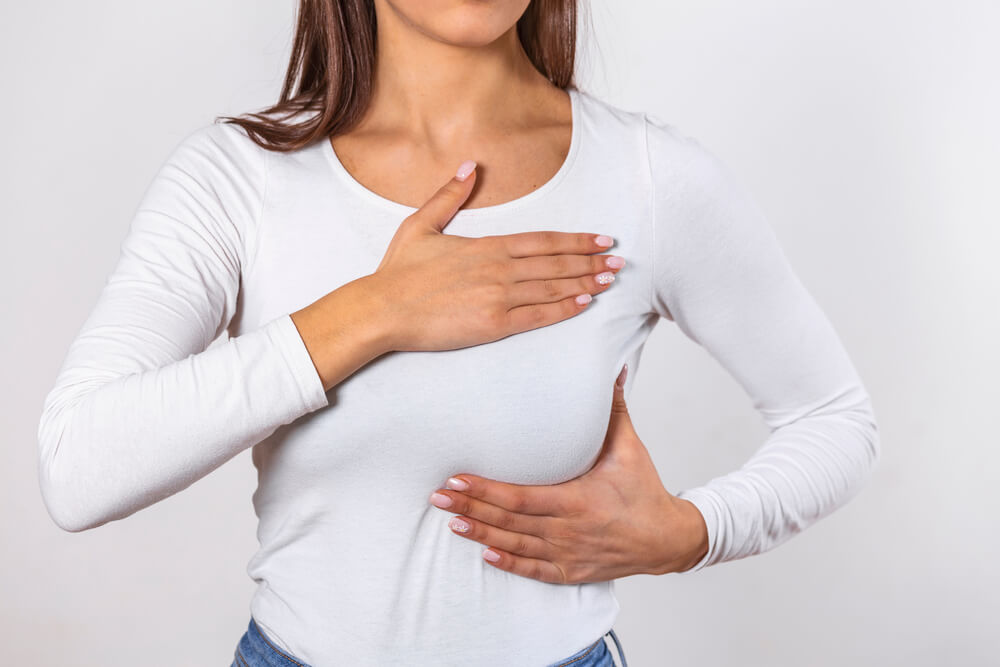Sacs filled with fluid located within your breast tissue are called breast cysts. Very often, women can feel them with their fingers, especially if they start being painful, which usually occurs around the monthly period. Women often share that feeling a cyst is a scary experience, so it is imperative to find an experienced medical practitioner who will help you minimize the stress. If you’re looking for experts in the field of reproductive health, Doral Beach Gynecology clinic is a place to visit.
Breast mass treatments are a service offered to women who are facing this condition and who want to treat or remove breast cysts, sometimes only as a preventive measure. This decision is made both by the patient and their chosen doctor because there are various different treatments that are not suitable for everyone.
Most breast lumps or cysts are benign. They are formed when empty milk ducts get filled with fluid. Sometimes the cysts are very small, so you cannot feel them, while other times, they reach several inches in size and are very visible. Cysts can also form clusters in one breast or both.
It is important to emphasize that breast lumps do not increase the risk of developing breast cancer, and they cannot turn into something dangerous. Certain factors can make you more prone to developing breast cysts; they include age (women from 35 to 50) and whether you are in the premenopausal or postmenopausal era.
Types of Breast Cysts

As mentioned, breast lumps can come in different shapes and sizes. Below you can find the three main types of breast cysts:
- Simple breast cysts are completely filled with fluid but are always benign. Almost 90% of all cysts fall under this category. The wall of the cyst is smooth, and no area of the cyst is solid.
- Complex breast cysts are a mix of fluids and solids; in 20% of cases, they can be cancerous. To determine whether the patient is facing cancer, the doctor removes a tissue sample to analyze it. This is called a biopsy.
- Complicated breast cysts are also filled with fluid, but the fluid might be cloudy, and the doctor may not be sure whether or not it can lead to cancer. Most often, they either do a biopsy or schedule another check-up in six months, to monitor the development of the cyst. There is around a 2% chance that complicated breast cysts develop into cancer.
Breast cysts are very common in women, and around 10% of women will get a breast lump at a certain point in their lives.
Breast Cyst Causes
Unfortunately, it is still unknown what causes breast cyst development in the human body. Many experts think that hormonal changes in a woman’s body can cause the development of breast cysts, but that is not scientifically confirmed. It is interesting to note that breast cysts most often do not develop when estrogen levels start decreasing. It is also seen as a normal life cycle for breasts – when the milk ducts shrink, any fluid found inside remains trapped.
Breast Cyst Symptoms
As mentioned at the beginning of this article, sometimes the breast lumps are so small you cannot even feel them. If the lump is larger, you will be able to feel it, and it will most probably have the following features:
- It will be either soft or firm, but mostly soft
- It will be smooth and round, with very distinctive edges
- It might be painful and tender, especially around your monthly cycle
- It can shrink in size after the period has ended
- It moves easily underneath the skin (larger cysts in particular)
The size of the cyst can vary from a grain of rice to the size of a golf ball. Sometimes the cyst can change before your period because of hormone fluctuation, and it can become bigger and more sore. Women may also experience breast cyst symptoms such as discharge from the nipples and very localized pain.
Diagnosis
Most often, cysts are seen during mammogram exams which screen the body for breast cancer. Patients can also discover the cysts because they become big enough, and the person can feel a lump growing in the breast tissue. In order to be able to properly diagnose a breast cyst, your doctor might do the following:
- Do a physical examination to feel the lump and determine the exact location.
- Perform a mammogram if the patient is older than 30 and if there is a history of breast cancer in the family.
- Perform an ultrasound which can show if the lump is solid or just filled with fluid.
- Perform a breast MRI for patients who are at high risk of cancer because this is used as the most accurate test to detect cancer cells early.
- Perform a needle biopsy, i.e., a breast cyst aspiration to extract the fluid but also to help with removing the cyst.
Treatment of Breast Cysts

When it comes to treatment options, most cysts do not need any interventions. The simple breast cyst does not cause problems or harm, and it oftentimes just goes away on its own. If you are not feeling comfortable due to the cyst, your chosen doctor can do a needle biopsy and, as mentioned above, drain the fluid in order to collapse the cyst.
If the fluid returns and you still feel pain, then the cyst might have to be surgically removed. When it comes to complicated and complex breast cysts, you might need to visit your doctor more often and discuss the potential future treatment steps with them.
Prevention
It is not possible to prevent the development of breast cysts. Therefore, it is essential to perform a regular self-exam, and if you are over 30, to go for annual mammogram testing. Assuming that a lump you discover is just a plain cyst is never good, so make sure you inform your doctor about any new developments regarding this topic.
Visit Us!
Breast cysts, although mostly benign, can cause stress and discomfort in women who discover them in their breast tissue. Almost 90% of all breast cysts are benign, they do not need any treatment or removal, but it is always safer to speak to a professional than to assume what the condition might entail.
Doral Beach Gynecology Clinic is there for our patients, whatever the case might be, so feel free to pick up the phone and schedule a consultation. Our specialists have worked for many years with patients dealing with breast cysts, and we have always been able to find a way to help them and offer support and guidance.


